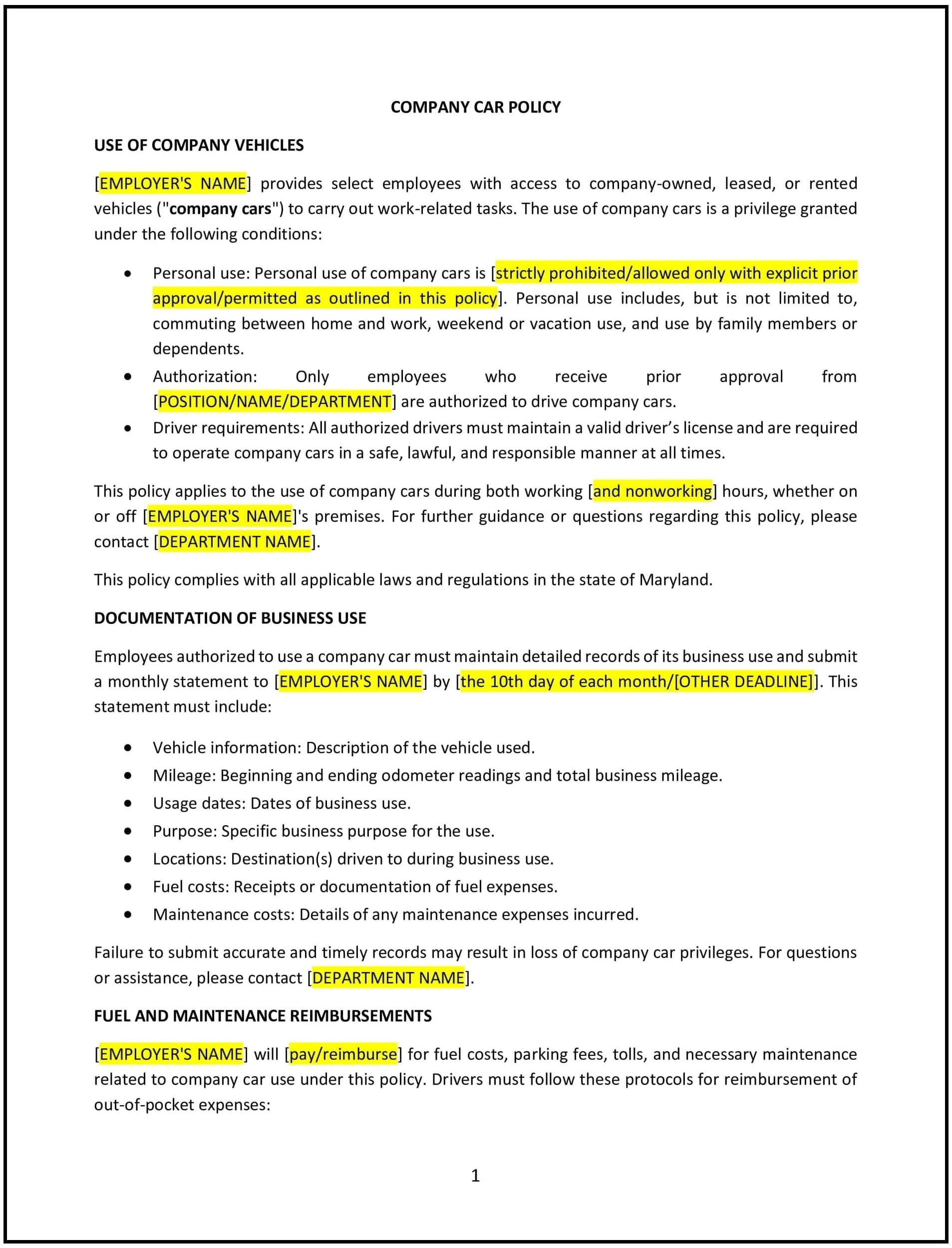Got contracts to review? While you're here for policies, let Cobrief make contract review effortless—start your free review now.

Customize this template for free
Company car policy (Maryland)
This company car policy is designed to help Maryland businesses manage the use of company-owned vehicles by employees. It outlines guidelines for eligibility, usage, and maintenance, ensuring safety and efficiency while meeting the business’s operational needs.
By adopting this policy, Maryland businesses can promote responsible vehicle use, reduce costs, and support employees who require vehicles for work-related purposes.
How to use this company car policy (Maryland)
- Define eligibility: Specify which employees qualify for a company car, such as those in roles requiring frequent travel or on-call availability.
- Outline permitted use: Detail acceptable uses for company cars, focusing on work-related activities and any restrictions on personal use.
- Address maintenance responsibilities: Clarify whether the employee or business is responsible for routine maintenance, repairs, and fuel costs.
- Include safety requirements: Require employees to maintain a valid driver’s license, follow Maryland traffic laws, and use seat belts at all times.
- Establish reporting procedures: Provide instructions for reporting accidents, damage, or tickets received while using a company car.
- Detail insurance coverage: Explain how the company’s insurance policy applies to employees using company vehicles.
- Provide a return process: Specify the process for returning the car in cases of role changes, termination, or extended leave.
Benefits of using this company car policy (Maryland)
Implementing this policy offers Maryland businesses several advantages:
- Promotes safety: Encourages adherence to traffic laws and safe driving practices.
- Reduces liability: Helps manage risks associated with the use of company-owned vehicles.
- Controls costs: Outlines responsibilities for fuel, maintenance, and repairs to avoid unnecessary expenses.
- Supports productivity: Provides employees with reliable transportation for work-related tasks.
- Enhances accountability: Creates a structured framework for managing company vehicle usage.
Tips for using this company car policy (Maryland)
- Communicate the policy: Ensure all eligible employees understand their responsibilities and the guidelines for using company cars.
- Train employees: Provide training on safe driving practices and procedures for handling accidents or emergencies.
- Monitor usage: Regularly review vehicle usage logs to identify patterns or potential misuse.
- Stay current: Review Maryland-specific traffic laws and insurance requirements to reflect local regulations in the policy.
- Encourage feedback: Allow employees to share suggestions or concerns about the policy to improve its effectiveness.